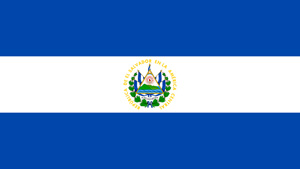
January 8, 2025: Citizen of Liberia finally obtains citizenship after multiple denials over 20 years
January 14, 2025
Facts: In May of 2024, a citizen of Liberia, who had obtained her residency in 1999, came to the firm seeking help with her naturalization application. It had recently been denied, again, because USCIS had determined that she had committed fraud in obtaining her residency, and because she had not obtained her residency lawfully, she was therefore permanently ineligible for naturalization.
The Firm’s Representation: The firm reviewed the facts of our client’s case and preliminarily determined that she should file form N-336, Request for a Hearing on a Decision in Naturalization Proceedings Under Section 336, which is essentially an appeal of the decision to deny an application for naturalization. The firm quickly filed the N-336 application for our client. Then, the firm began gathering even more information about our client’s case from various sources, including immediately submitting a Freedom of Information Act request to obtain our client’s immigration files from the government. The firm did a deep-dive review of her immigration file and other documents collected by the firm. In doing so, the firm noticed several facts which had been overlooked by both our client and other attorneys she had previously hired to work on her case. These facts demonstrated that our client had in fact not committed fraud. With this knowledge in hand, the firm prepared for our client’s N-336 interview by preparing necessary affidavits from both our client and other witnesses to her case. Through the affidavits and our client’s testimony at her N-336 interview, the firm was able to present a compelling case that no fraud had occurred.
Outcome: On or about November 1, 2024, our client’s application for naturalization was reopened, and on January 8, 2025, she became a naturalized citizen of the United States.
Comments: The firm prides itself on meticulously reviewing our clients’ case files to find ways to help our clients achieve their immigration goals. Our client is beyond happy–and so are we.

August 13, 2023 – Citizen of Nigeria is naturalized after appeal to USCIS
September 2, 2023
Facts: On September 7, 2022, a citizen of Nigeria came to the firm for help because USCIS had denied his naturalization application accusing our client of lying during his naturalization interview.
The Firm’s Representation: After talking with our client, the firm came to the conclusion that USCIS made a mistake and recommended that our client appeal the decision. After reviewing the evidence and taking an affidavit from our client and preparing a legal brief, the firm filed an N-336, Request for a Hearing on a Decision in Naturalization Proceedings Under Section 336 later in mid-Setpember of 2022 (within the 33-day appeal deadline).
Outcome: On August 13, 2023, our client was naturalized as a U.S. citizen.
Comments: The employees of USCIS try to do their best, but they sometimes make mistakes. Here, the USCIS officer realized that a mistake had been made and took corrective action and granted the firm’s appeal and naturalized our client.

Citizen of Jamaica is granted permanent residency even though he filed his I-751 Petition to Remove Conditions on Residency over six years late
November 11, 2020
Facts: In April of 2016, a citizen of Jamaica came to the firm seeking help with his temporary residence card which had expired six years earlier. Too, our client had already been placed in removal proceedings.
The Firm’s Representation: Given the six-year delay, the firm could not promise our client a positive result, nevertheless the firm went to work right away and gathered the necessary documents and forms to try to remove the temporary conditions of our client’s temporary residency card. The firm discovered that our client’s wife had filed for divorce and never properly served our client with any notice of the divorce proceedings. The firm applied for a waiver based on divorce in the I-751 Petition to Remove Temporary Conditions on Residency application. The processing of our client’s I-751 took several years. In the meantime, our client had several arrests and other brushes with law enforcement which resulted in extended periods of incarceration by local law enforcement and ICE after our client’s immigration bond was revoked. The firm worked with our client’s Virginia criminal defense attorney to fashion an immigration friendly plea. Based on our client’s numerous brushes with law enforcement, the USCIS scrutinized our client’s I-751 application closely and requested numerous documents through a Notice of Intent to Deny (because USCIS asserted that our client’s marriage to his ex-wife was not bona fide) and a Request for Further Evidence (for documents related to our client’s arrests). Regarding the Request for Further Evidence of our client’s arrests, the firm prepared a legal memorandum asserting that our client’s arrests and convictions had no bearing on the USCIS decision to approve or deny our client’s I-751.
Outcome: Our client’s I-751 was granted on October 2, 2020. The firm learned about the grant of residency on October 8, 2020 and after the firm made some phone calls to ICE, our client was released from ICE custody on October 9, 2020.
Comments: Our client spent two years in local and ICE custody and his I-751 application was far from ordinary and it was a gratifying win for the firm and for our client. Our client and his family were amazed and thrilled that he walked out of ICE custody with his permanent residency card. The firm also advised our client that he was immediately eligible to apply for citizenship.

Citizen of Guatemala wins political asylum reversal from the Board of Immigration Appeals based on a claim of persecution for exposing political corruption in her home country
September 4, 2019
Facts: In September of 2016, a citizen of Guatemala came to the firm seeking help to apply for asylum.
The Firm’s Representation: Our client was the victim of death threats after she tried to expose political corruption in her home town in Guatemala. The firm believed that our client had a strong case for asylum based on persecution on account of her anti-corruption political opinion. At trial, the government conceded that our client merited withholding of removal, but opposed a grant of asylum. After taking testimony from our client, the immigration judge adhered to the government’s position and granted withholding of removal but denied the application for asylum. The firm quickly convinced our client to appeal to the Board of Immigration Appeals.
Outcome: On September 4, 2019, the Board of Immigration Appeals reversed the decision of the immigration judge finding that our client had indeed met her burden to demonstrate that she was the victim of past persecution on account of her anti-corruption political opinion and remanded the case to make findings, if any, that the country conditions in Guatemala have changed to such an extent that would rebut a presumption of future persecution.
Comments: This was an odd case because our client had what seemed like a very strong asylum claim based on exposing political corruption in her country and the firm was perplexed when the immigration judge denied the claim. Thankfully, the Board of Immigration Appeal recognized the strength of our client’s claim and reversed the immigration judge’s decision.

Citizen of Ecuador has his I-360 Special Immigrant Juvenile Status visa approved through nunc pro tunc findings after turning 21 years of age
September 3, 2019
Facts: In August of 2017, a citizen of Ecuador came to the firm seeking help with his Special Immigrant Juvenile Status (SIJS) petition.
The Firm’s Representation: At first, the firm was concerned that we could not help our client since he had already turned 21 years of age, which is the cut-off age to obtain SIJS benefits. But, the firm learned that our client’s previous attorney had provided our client with horribly deficient legal representation – the previous attorney had obtained the custody order and filed the I-360 SIJS petition without the SIJS findings and despite repeated notices from USCIS for the SIJS findings, the previous attorney did nothing and allowed our client’s I-360 to be denied for abandonment and allowed our client to turn 21 years of age. The firm was outraged and accepted the representation.
First, the firm helped our client file a bar complaint against his previous attorney. Then the firm filed a motion in the Wicomico County Circuit Court to reopen our client’s custody case and asked the Wicomico County Circuit Court to make nunc pro tunc SIJS findings. After intense briefing on the issue of the court’s jurisdiction to make SIJS findings even though the minor turned 21 years of age, the Wicomico County Circuit Court made the nunc pro tunc SIJS findings.
Then, the firm filed an I-290 Motion for Reopen our client’s denied I-360 SIJS petition with USCIS and submitted the nunc pro tunc SIJS findings, even though the I-360 had been denied almost two years earlier. Unfortunately, the USCIS denied our motion to reopen as untimely. The firm then sued USCIS in federal court and asserted that USCIS abused its discretion in denying the motion to reopen pursuant to the Administrative Procedures Act (APA).
Outcome: On September 3, 2019, after two years of litigation in the Maryland State Courts, the USCIS and the U.S. District Court for the District of Maryland, USCIS granted our motion to reopen and granted our client’s I-360 SIJS visa. Our client can now apply for permanent residency which he plans to do right away.
Comments: This was an extremely gratifying case for the firm because we were able to salvage a case that did not seem salvageable at first, but the firm would not give up on our client’s case because we believed that our client had been tragically wronged by his previous attorney and we were determined to fix it if possible.

Citizen of El Salvador is granted asylum after the case was remanded from the Fourth Circuit and the Board of Immigration Appeals
July 18, 2019
Facts: In August 2014, a citizen of El Salvador came to the firm seeking help with his asylum case in the Baltimore Immigration Court.
The Firm’s Representation: The firm believed that our client had a good claim of asylum based on a fear of persecution on account of an imputed political opinion where the persecutor was motivated by mixed motives of local politics and financial gain. Unfortunately, the Immigration Judge denied our client’s asylum application in November 2015. The firm advised our client to continue to fight for his rights and the Immigration Judge’s decision was appealed to the Board of Immigration Appeals. Unfortunately, in November of 2016, the Board of Immigration Appeals denied our client’s asylum claim once again. Down but not done, the firm convinced our client to file a petition for review in the U.S. Court of Appeals for the Fourth Circuit.
Outcome: On June 6, 2017, the Fourth Circuit remanded our client’s case back to the Board of Immigration Appeals to re-consider our client’s direct appeal in light of the Fourth’s Circuit line of mixed-motive asylum case law. On September 28, 2017, our client’s case was remanded from the Board of Immigration Appeal back to the Baltimore Immigration Court. On July 18, 2019, our client was granted asylum.
Comments: The firm has won many cases on or after appeal. It may seem pointless to continue with your case in the face of repeated setbacks. But, the firm prides itself on fighting for our clients’ rights, no matter how long and how far, when we believe in merits of our clients’ cases. Here, our client received asylum and his wife and children were able to apply for asylum as derivatives.

Mandamus suit in federal court prompts USCIS to grant green card application for a citizen of El Salvador who was “waved through” the border
June 21, 2019
Facts: In early 2017, a citizen of El Salvador came to the firm seeking help to get a green card.
The Firm’s Representation: Our client was married to a U.S. citizen. Our client had been previously represented by a notario who had successfully obtained an approved I-130 family based petition, but the notario had told our client that she had to return to El Salvador to get an immigrant visa to return to the United States because she had entered the United States illegally. However, the firm asked the client to describe her entry into the United States and the firm determined that our client had been “waved through” the border which is a valid entry into the United States according to a case in the Board of Immigration Appeals entitled Matter of Quilantan, 25 I&N Dec. 285 (BIA 2010). So, in April of 2017, the firm filed our client’s I-485 application for permanent residency based on the approved I-130 from her U.S. citizen spouse and the “wave through”. The firm attended an interview with USCIS, but USCIS would not make a decision on the case, even after two years of waiting. In April of 2019, our client was tired of waiting and engaged the firm to file a mandamus in federal court to compel USCIS to make a decision on our client’s I-485 green card application.
Outcome: On June 21, 2019, USCIS granted our client’s green card application. The client was needless to say overjoyed and celebrated July 4th as newly minted permanent resident of the United States.

Anne Arundel County District Court grants coram nobis relief to citizen of Mexico
January 3, 2018
Facts: In early 2017, a citizen of Mexico came to the firm seeking help from being deported.
The Firm’s Representation: Our client had been placed in removal proceedings. However, he had resided in the United States for over 20 years and he had two U.S. citizen children, which made him eligible for cancellation of removal for certain non-permanent residents pursuant to INA 240A(b). The problem was that our client had a conviction for the Maryland offense of identity theft. Most likely, such a conviction would have made our client ineligible for cancellation of removal. Our client stated to the firm that he had been advised by an immigration attorney that a conviction for the Maryland offense of identity theft would not affect his immigration status. The firm disagreed and recommended that our client file a coram nobis in the criminal court. The firm recognized that our client should never have taken a guilty plea because the evidence was insufficient to sustain the charge to theft. Meanwhile, in the immigration court, our client’s eligibility for cancellation of removal was being questioned by the immigration judge who requested briefing on the issue from the firm.
Outcome: On January 3, 2018, the Anne Arundel County District Court granted the coram nobis petition and vacated our client’s conviction for the Maryland offense of identity theft. Instead of briefing the issue in the immigration court, the firm simply filed a copy of the order from the criminal court and asserted that our client was now eligible to move forward on his application for cancellation of removal for certain non-permanent residents pursuant to INA 240A(b) since he had no conviction at all. Hopefully, with the firm’s help, our client will obtain his permanent residency in the not too distant future.

Citizen of El Salvador was granted U.S. citizenship after three and half years of litigation
September 9, 2017
Facts: In early 2014, a citizen of El Salvador came to the firm seeking help to get his citizenship.
The Firm’s Representation: Our client had been a green card holder for 27 years, but he had been convicted of two counts of Maryland theft in 1996 and 1997. Understandably, our client was nervous about applying for naturalization. In 2014, those theft convictions were considered “aggravated felony” theft convictions and precluded naturalization. So, the firm filed coram nobis petitions for each of his theft convictions in the Maryland state court. Unfortunately, the coram nobis petitions were denied but the firm appealed. During the appellate process, the immigration case law changed such that Maryland theft was no longer being considered an “aggravated felony” theft conviction. So, the firm asked the appellate court to stay the appeal while our client applied for naturalization. Despite extensive legal briefing, our client’s naturalization application was denied. The firm appealed the denial of the naturalization application by filing an N-336 Request for a Hearing on a Decision in Naturalization Proceedings (Under Section 336 of the INA). The firm included additional briefing based on a recent case that had been decided in the Supreme Court, Mathis v. U.S., 136 S. Ct. 2243, 2247 (2016), that supported our client’s position.
Outcome: On September 9, 2017, our client was sworn in as a citizen of the United States.
Comments: This case was a very gratifying win for the firm because it was such a hard-won fight. The firm believed that our client deserved citizenship and both the firm and our client never gave up, despite the numerous setbacks.

Citizen of Guatemala receives I-601A Provisional Unlawful Presence Waiver
December 16, 2016
Facts: In December 2015, a citizen of Guatemala came to the firm seeking a pathway to getting a green card. The citizen of Guatemala was married to a United States citizen spouse, but the citizen of Guatemala had entered the United States illegally and therefore he could not get a green card here in the United States – he had to travel back to Guatemala and return with an immigrant visa.
The Firm’s Representation: A non-citizen who enters the United States illegally generally cannot get a green card here in the United States – illegal entry is a bar to adjusting status to that of a lawful permanent resident. In such cases, the only way to get a green card is to apply for an immigrant visa at an embassy in the non-citizen’s home country, then travel to that country, then attend the interview at the embassy, then receive a determination of inadmissibility based on illegal presence in the United States, and then apply for a waiver which may take two years to adjudicate. However, President Obama initiated a program called the Provisional Unlawful Presence Waiver which allows the pre-processing of an unlawful presence waiver here in the United States, before the non-citizen travels to his or her country of origin. The firm takes an individualized approach with every Provisional Unlawful Presence Waiver to make sure that the waiver application has the best opportunity to be approved. This individualized approach has served the firm well because so far the firm has never had a Provisional Unlawful Presence Waiver denied. In our client’s case, the firm dug deep into the client’s background and the background of his spouse to find the necessary evidence for extreme hardship, the key requirement for a Provisional Unlawful Presence Waiver.
Outcome: The firm’s individualized approach worked to perfection again and our client from Guatemala was granted a Provisional Unlawful presence Waiver on December 16, 2016. Our client can now start the final step in the green card process by applying for his visa with the United States Embassy in Guatemala City, Guatemala.

